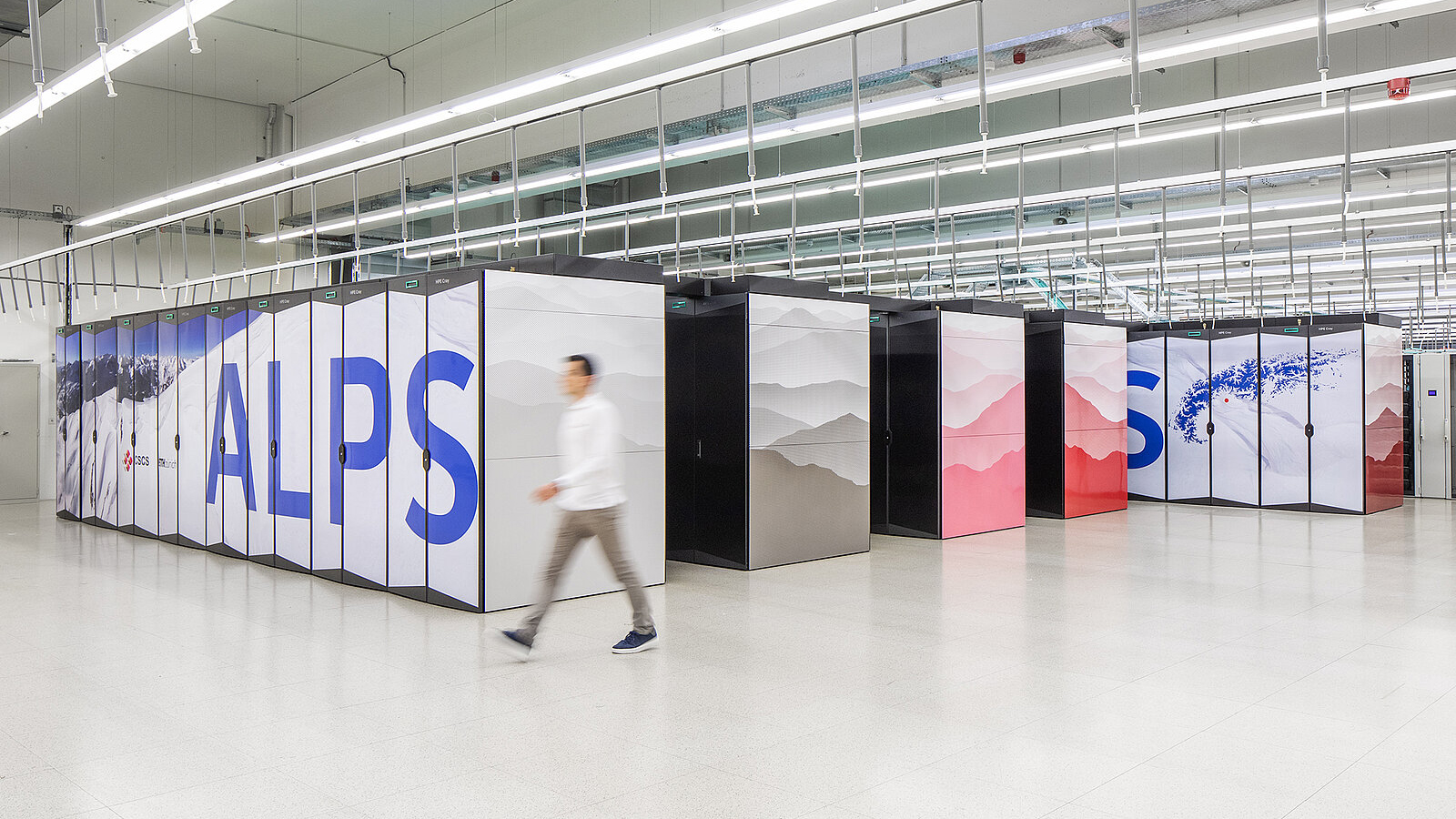Swiss supercomputer Alps comes online, aimed at complex AI development
The Swiss National Supercomputing Center hopes Alps will help Switzerland seriously advance research in AI trustworthiness


The Swiss National Supercomputing Centre (CSCS) has unveiled Alps, a supercomputer it claims is at least the sixth most powerful supercomputer in the world.
Alps has been developed to meet scientific research's extreme data and computing requirements and will, says CSCS, position Switzerland as the world's leading hub for the development and implementation of transparent and trustworthy AI solutions.
"Alps makes it possible to train complex AI models for important applications, for example, in medicine and climate research," said Andreas Krause, who heads the AI Centre at ETH Zurich.
Located in Lugano in southern Switzerland and operated by ETH Zurich, it's housed in 33 cabinets covering 116 square meters. Alps is based on a Cray Supercomputer EX from Hewlett-Packard Enterprise (HPE) and has 10,752 NVIDIA Grace Hopper Superchips.
In the June 2024 Top500 list of supercomputers, Alps ranked sixth in the world for computing power. But this was only its first expansion stage – when it was operating at around 60% of its full operational.
When fully expanded, it will have a maximum performance in the order of half an exaflop – half a billion, billion floating point operations per second – which is likely to push it further up the list and would see it steal the crown of Europe’s most powerful supercomputer from LUMI, based in Finland.
Other institutions taking advantage of the supercomputer include the Paul Scherrer Institute, Switzerland's largest research center for natural and engineering sciences.
Get the ITPro daily newsletter
Sign up today and you will receive a free copy of our Future Focus 2025 report - the leading guidance on AI, cybersecurity and other IT challenges as per 700+ senior executives
"With its cloud-native architecture, we can create versatile software-defined clusters (vClusters) tailored to the specific needs of user communities, ensuring the maintenance of the necessary confidentiality," explained Thomas Schulthess, director of the CSCS.
ETH Zurich has emphasized Alps’ importance in driving forward Switzerland’s AI research community. Its rare computing capabilities are expected to unlock new discoveries in the field and empower academics to undertake research in greater detail and shorter periods of time.
"Alps meets today's extreme computing demands in science,” said group lead data-center infrastructure at CSCS Jerome Tissieres. “It is among the world's fastest supercomputers, enabling world-class research not only in AI/ML but also in other areas of research.
"In addition, Alps is not just a machine; it is part of a larger and evolving research infrastructure that includes other elements, such as another supercomputer located at EPFL, Lausanne."
The computing power of Alps is reflected in its extremely high energy consumption, with the power bill for the supercomputer expected to total around 15 to 21 million Swiss francs ($17.7–24.8 million) per year.
Alps may not retain its high position in the rankings for long. Japan’s Ministry of Education, Culture, Sports, Science and Technology (MEXT) recently started working on what it says will become the world’s first ‘zeta-class’ supercomputer, costing around $775 million.
Known as Fugaku Next, it's due to go online in 2030 and could run as much as 1,000 times faster than current exaflop machines such as Frontier and Aurora.
Emma Woollacott is a freelance journalist writing for publications including the BBC, Private Eye, Forbes, Raconteur and specialist technology titles.
-
 Westcon-Comstor unveils new managed SOC solution for Cisco partners
Westcon-Comstor unveils new managed SOC solution for Cisco partnersNews Powered by Cisco XDR, the new offering will enable partners to tap into new revenue streams, the company said
By Daniel Todd
-
 April rundown: MITRE frights and Microsoft launches Recall (again)
April rundown: MITRE frights and Microsoft launches Recall (again)ITPro Podcast As CISA delivered an eleventh-hour reprieve for the CVE database, AWS reportedly began to pause some data center leases
By Rory Bathgate